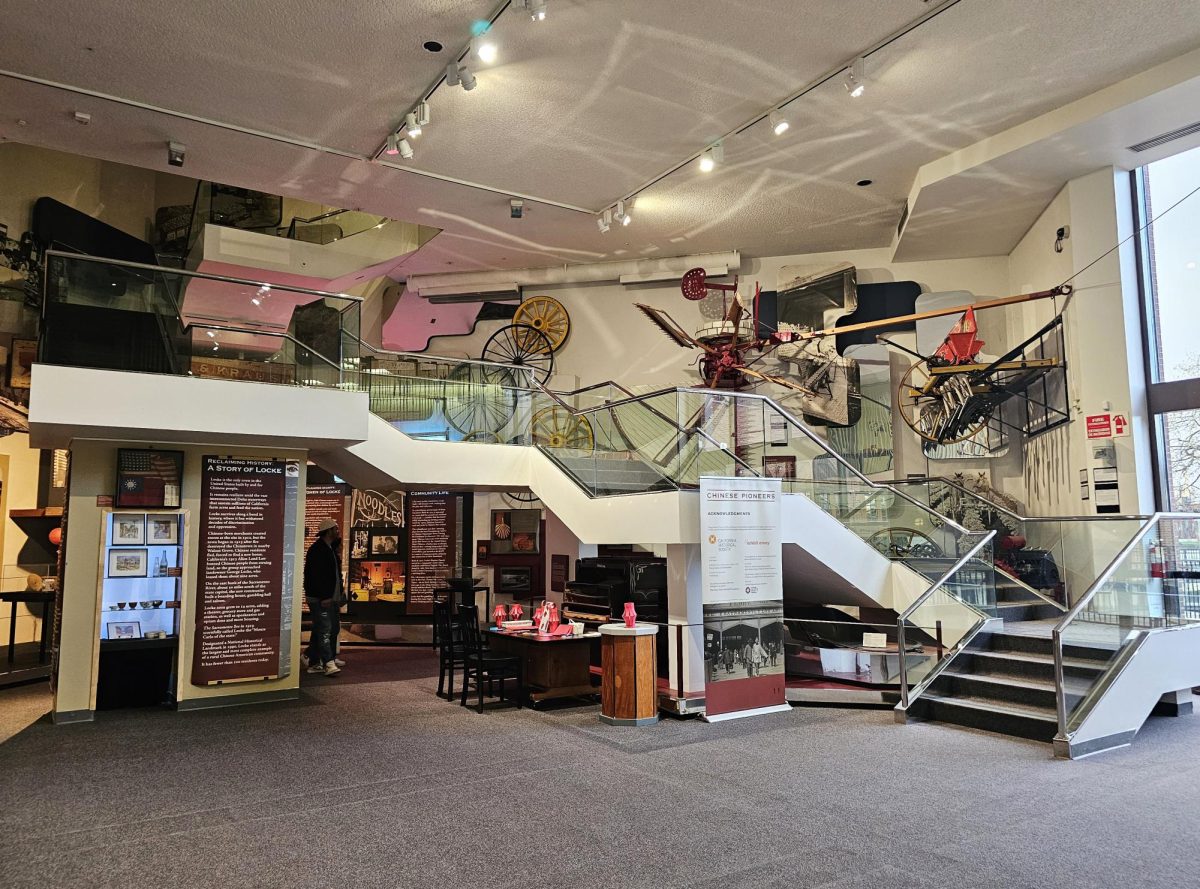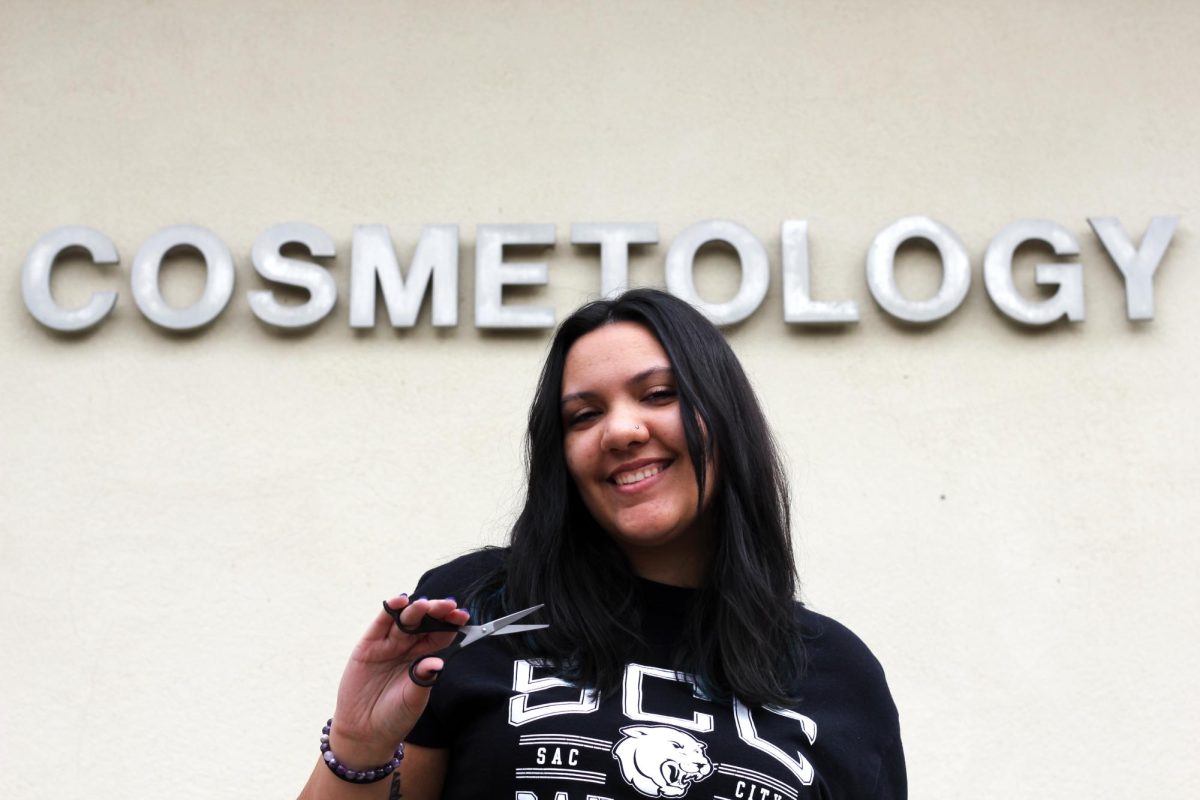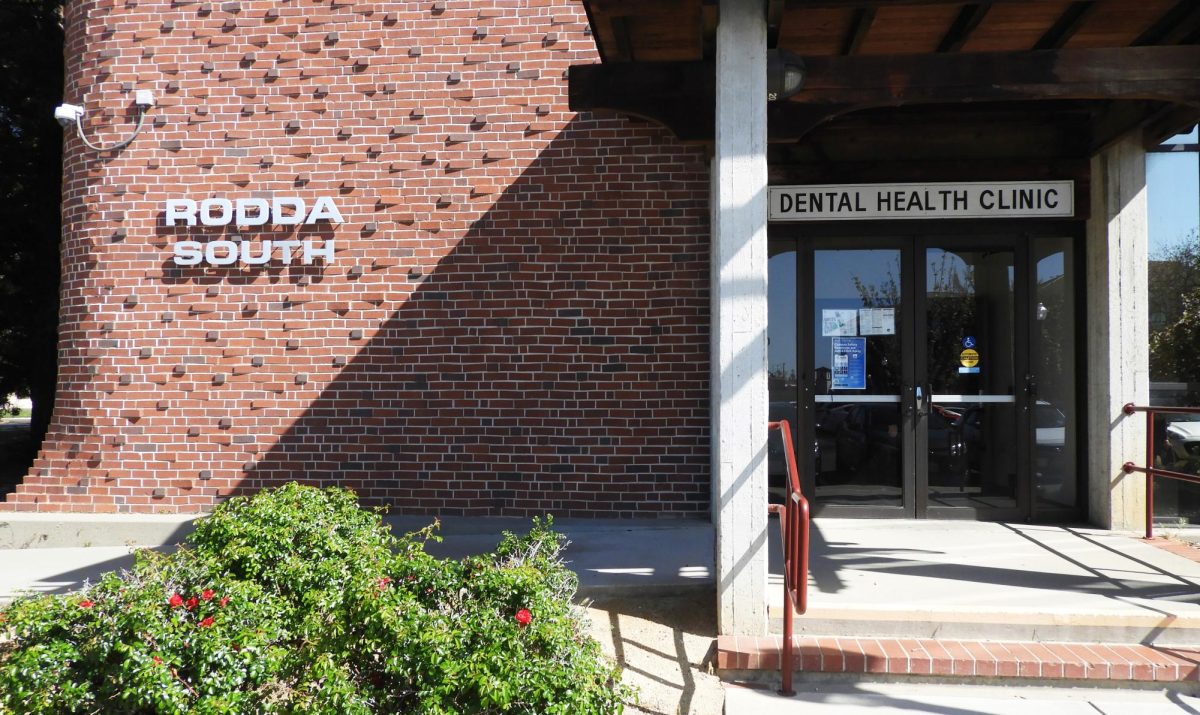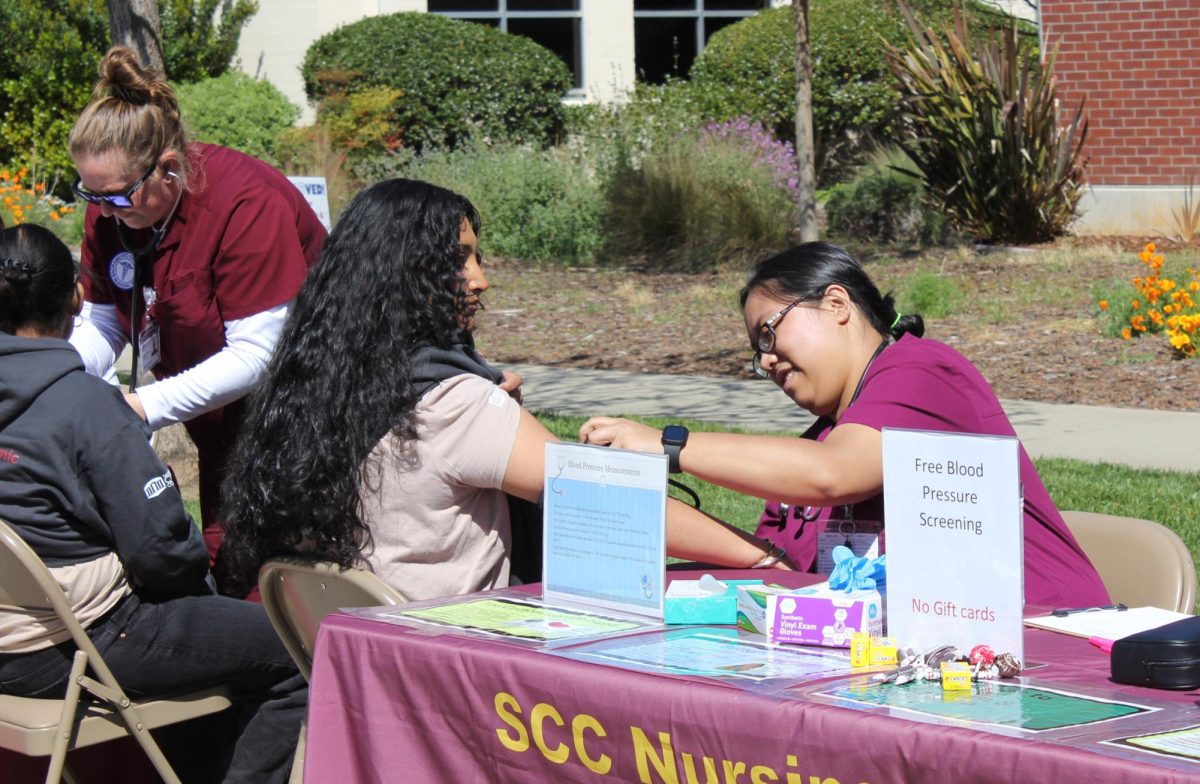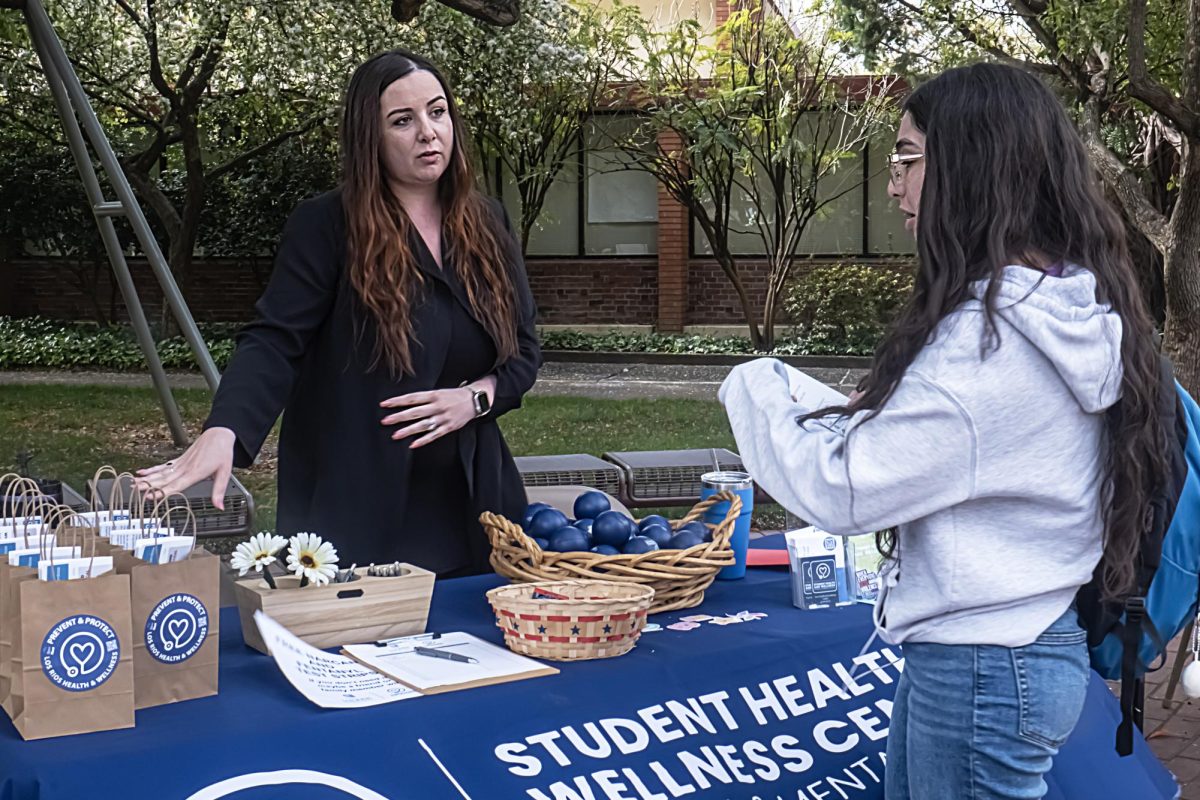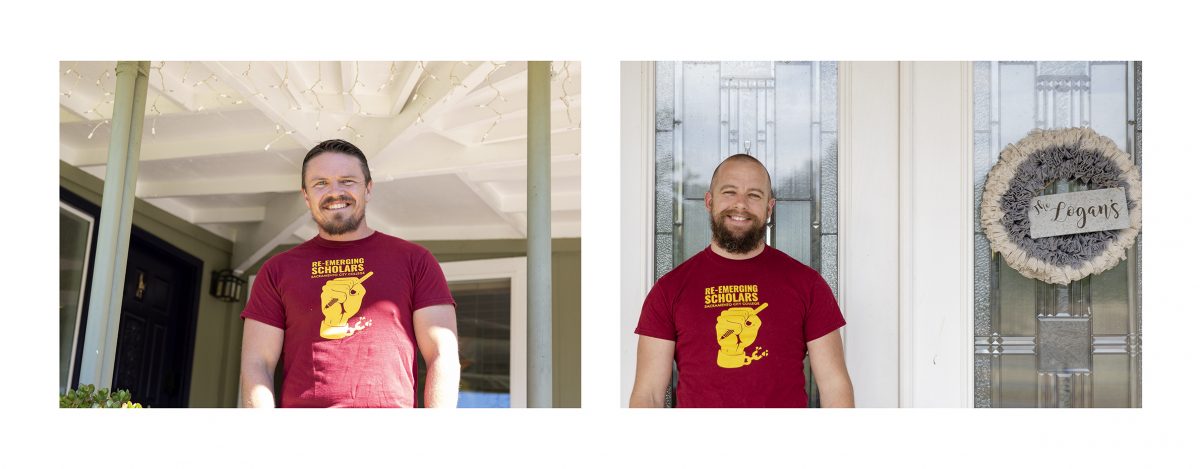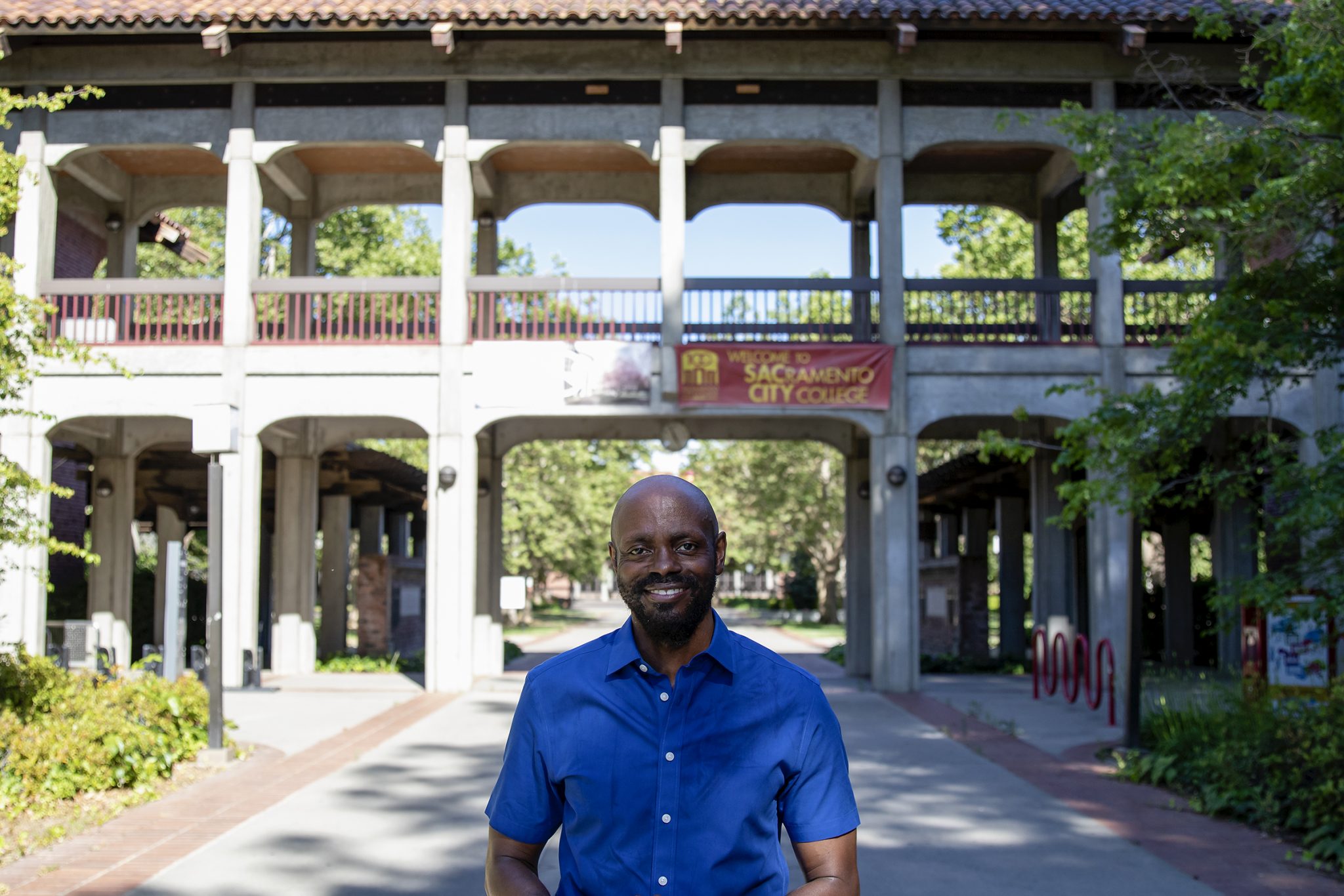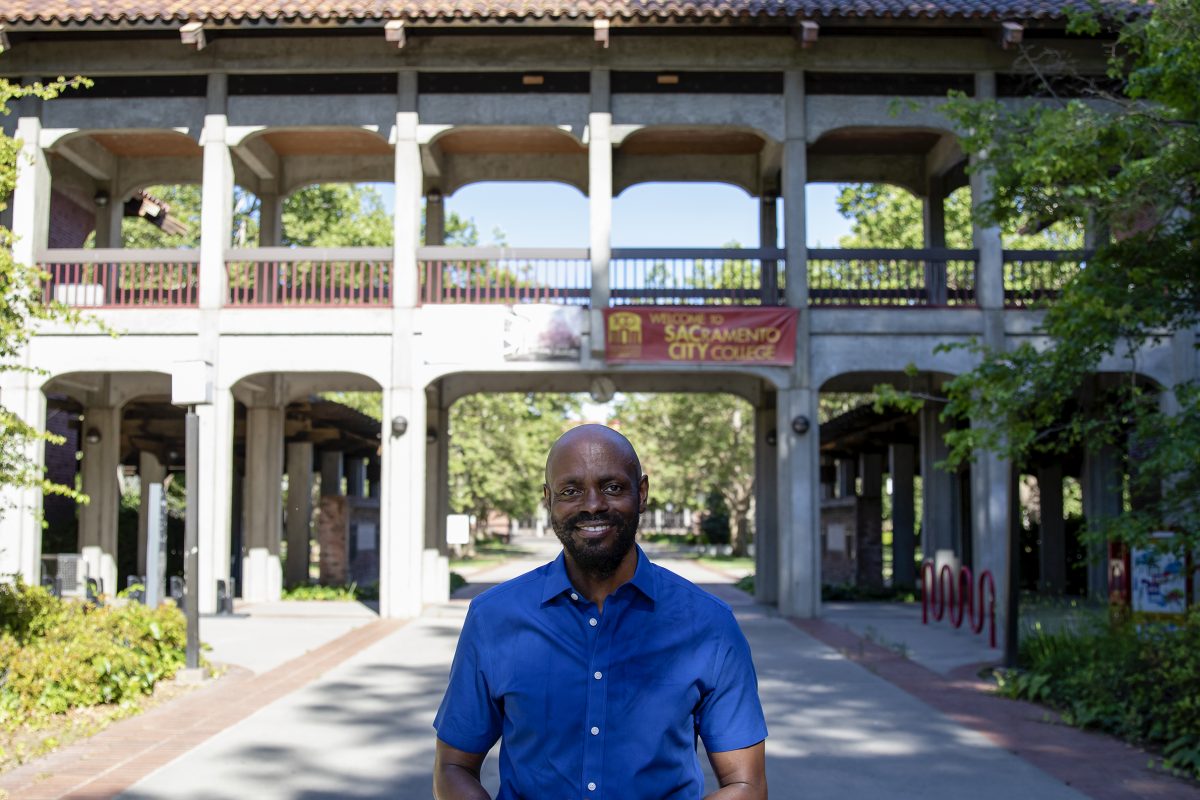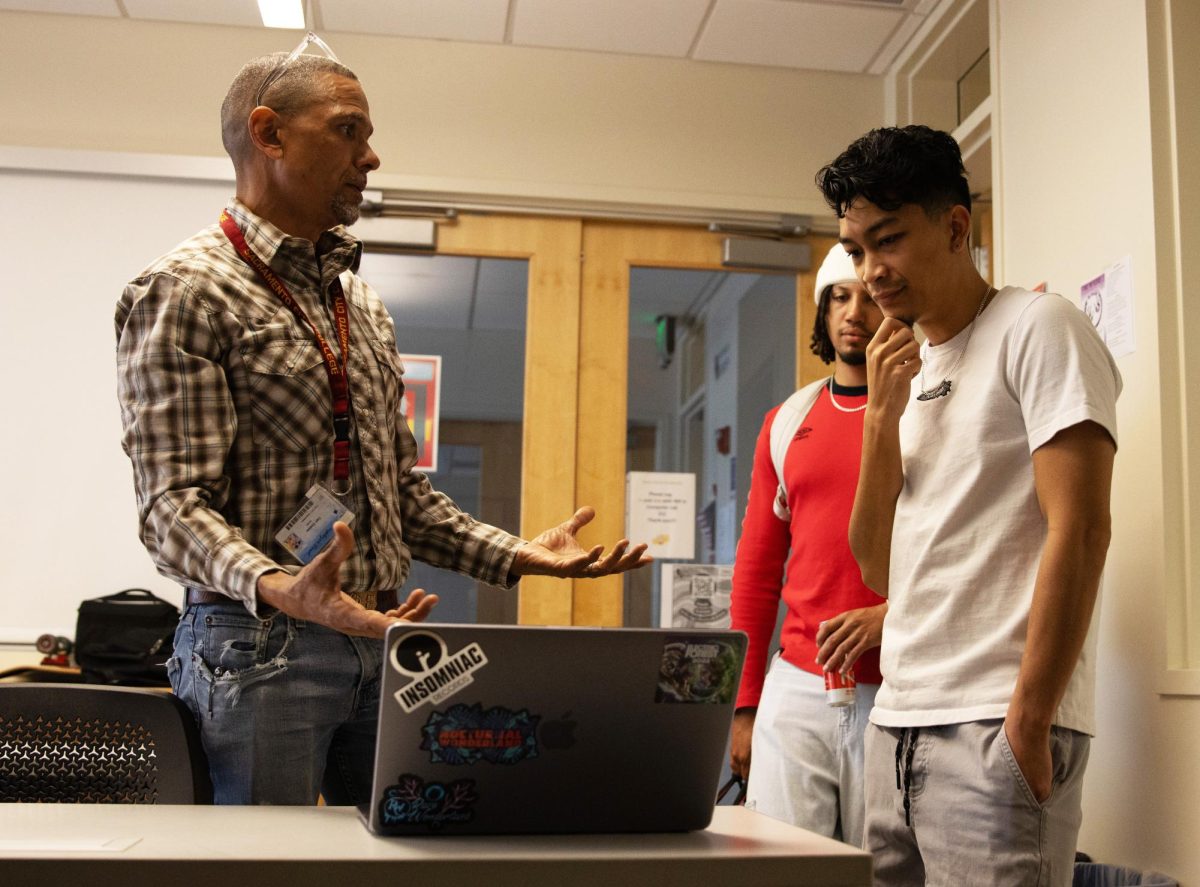From Darkness: City’s journey to light
An Express Project
From Darkness: City’s journey to light
When we at the Express set out to report a series on the socioeconomics affecting City College students, we could not have foreseen the tidal wave of pandemic that quickly swept over California, the country and the world.
As the stay-at-home order upended the normalcy of day-to-day life and we continued with our reporting, we watched our community evolve and the stories with them.
We saw heart in formerly incarcerated students and civilians striving to serve and be a part of their communities. We saw compassion in a black student’s dedication to positively impacting his community despite being the target of racial profiling. We saw resilience in students struggling to pay for school, find housing or suffering food insecurities. We saw leadership from City College students, faculty and staff to push forward despite their circumstances.
Rather than sidelining these issues during a time of global crisis, coronavirus has brought many of the topics in the stories below to the forefront, presenting new hardships to rise above, and new perspectives for discussion.
In recent days we have seen anger boil over in response to the police killing of George Floyd in Minneapolis. In a brief opportunity the night of May 31 for police to kneel in unison with protestors at L Street and 10th Street in Sacramento, we instead saw police unleash hell on kneeling protestors with a volley of tear gas, flash bangs and pepper balls.
It is unclear what will come of this unprecedented unrest, but through our reporting we have seen time and time again the perseverance of Sacramentans—to find light in darkness.
—Ben Irwin, Express journalist
An Express Project
From Darkness: City’s journey to light
When we at the Express set out to report a series on the socioeconomics affecting City College students, we could not have foreseen the tidal wave of pandemic that quickly swept over California, the country and the world.
As the stay-at-home order upended the normalcy of day-to-day life and we continued with our reporting, we watched our community evolve and the stories with them.
We saw heart in formerly incarcerated students and civilians striving to serve and be a part of their communities. We saw compassion in a black student’s dedication to positively impacting his community despite being the target of racial profiling. We saw resilience in students struggling to pay for school, find housing or suffering food insecurities. We saw leadership from City College students, faculty and staff to push forward despite their circumstances.
Rather than sidelining these issues during a time of global crisis, coronavirus has brought many of the topics in the stories below to the forefront, presenting new hardships to rise above, and new perspectives for discussion.
In recent days we have seen anger boil over in response to the police killing of George Floyd in Minneapolis. In a brief opportunity the night of May 31 for police to kneel in unison with protestors at L Street and 10th Street in Sacramento, we instead saw police unleash hell on kneeling protestors with a volley of tear gas, flash bangs and pepper balls.
It is unclear what will come of this unprecedented unrest, but through our reporting we have seen time and time again the perseverance of Sacramentans—to find light in darkness.
—Ben Irwin, Express journalist
By Ben Irwin
A tale of two wolves: A black City College student’s detainment by police and life after
That night, under the glow of the parking lot streetlight Scott-Femenella stood in plain sight. He said he made a point to keep a safe distance.
“You need to stay very far away from the scene where the officers are conducting their work,” said Scott-Femenella. “You don’t want to involve yourself in the situation. I had this extremely strong urge to reach for my cell phone and record. I had that urge from the moment I walked up.”
For Scott-Femenella, all too familiar was the memory of Stephon Clark, a young black man and fellow City College student shot dead two years ago by Sacramento Police Department officers after mistaking his cellphone for a gun. Scott-Femenella decided against risking his life to record the incident.
By Ben Irwin
A tale of two wolves: A black City College student’s detainment by police and life after
Protests erupt in Sacramento
Photos by Sara Nevis
Writing by Rose Vega
Demonstrators gathered at Cesar E. Chavez Plaza May 31 in Sacramento to protest the death of George Floyd, who was killed in Minneapolis after being detained by police May 25. Among the protestors was Stevante Clark, brother of Stephon Clark, former City College student who was fatally shot by Sacramento police March 18, 2018.
The May 31 demonstration marked the third day of protests in Sacramento, which started with a May 29 demonstration in Oak Park organized by Black Lives Matter Sacramento, according to The Sacramento Bee.
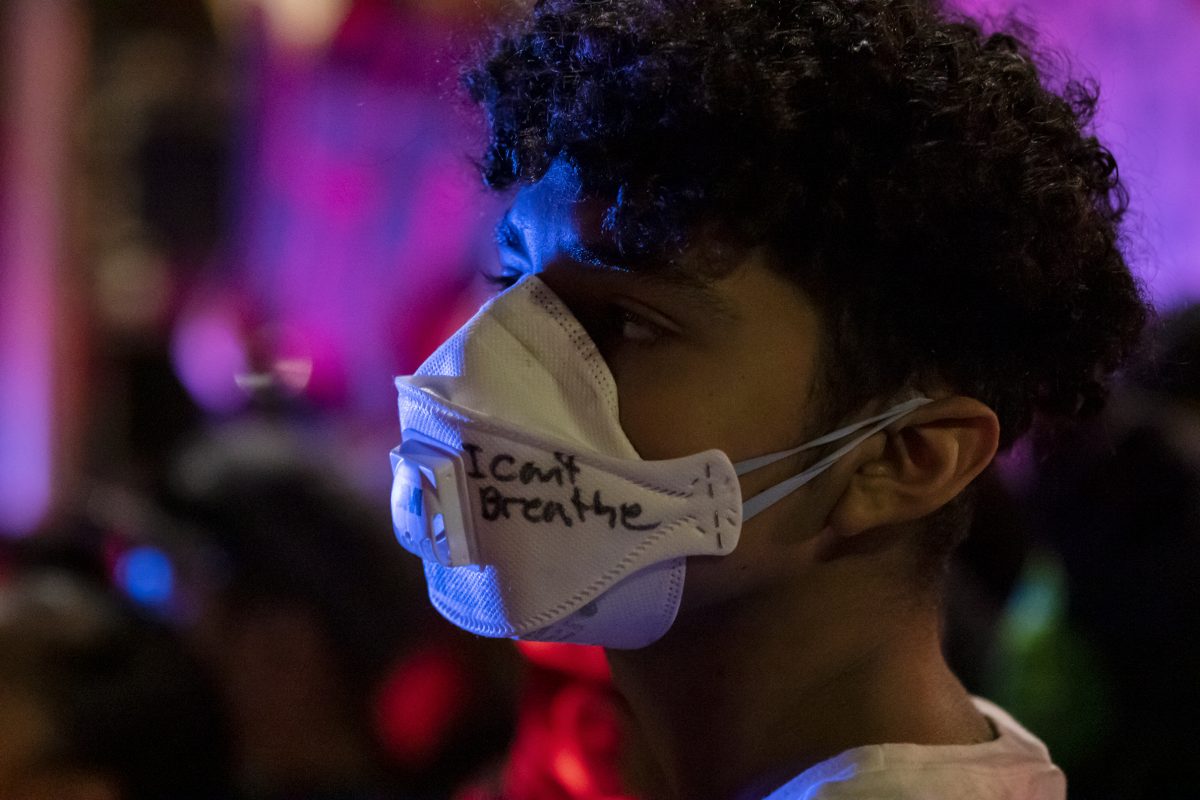
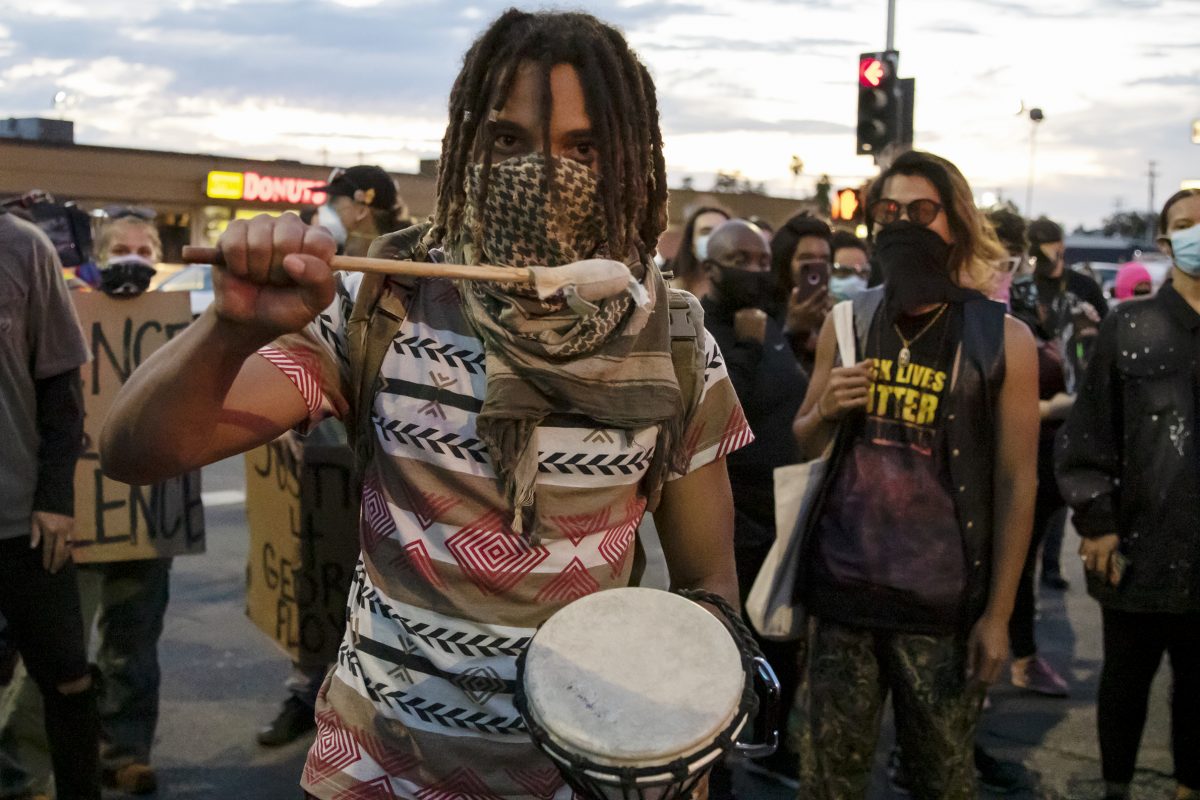
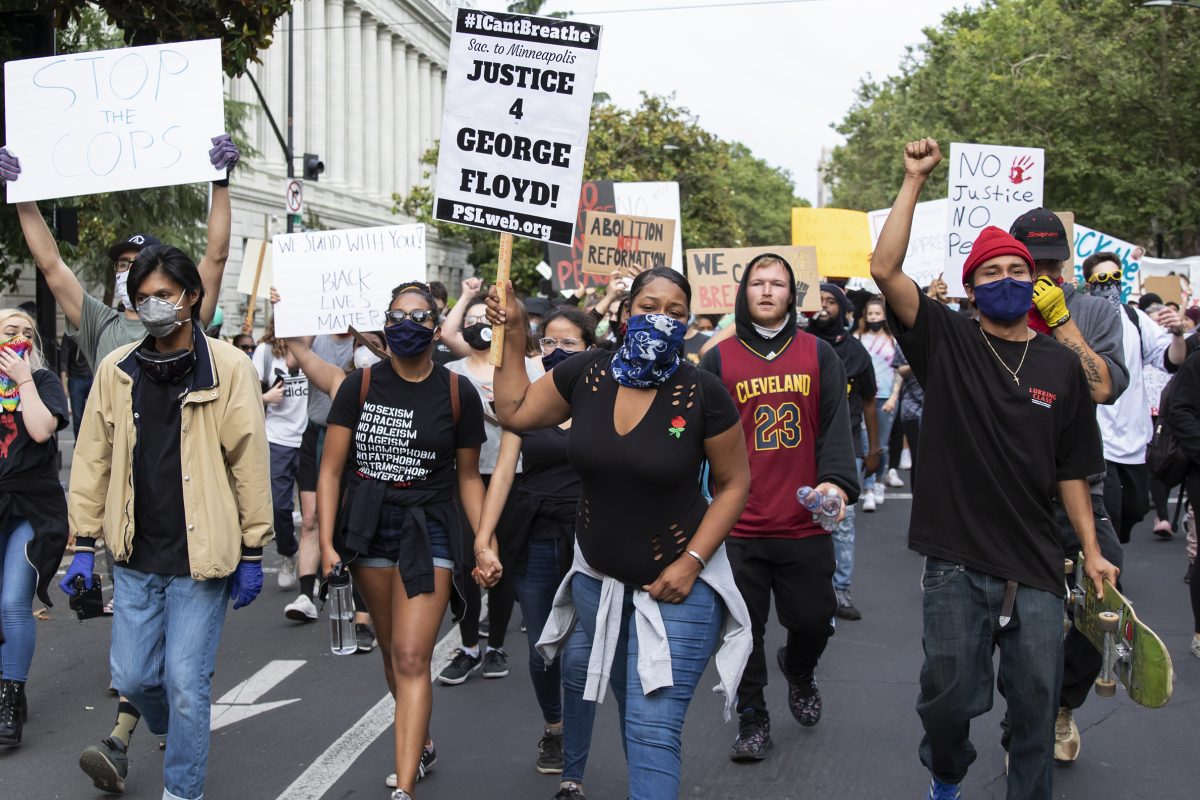
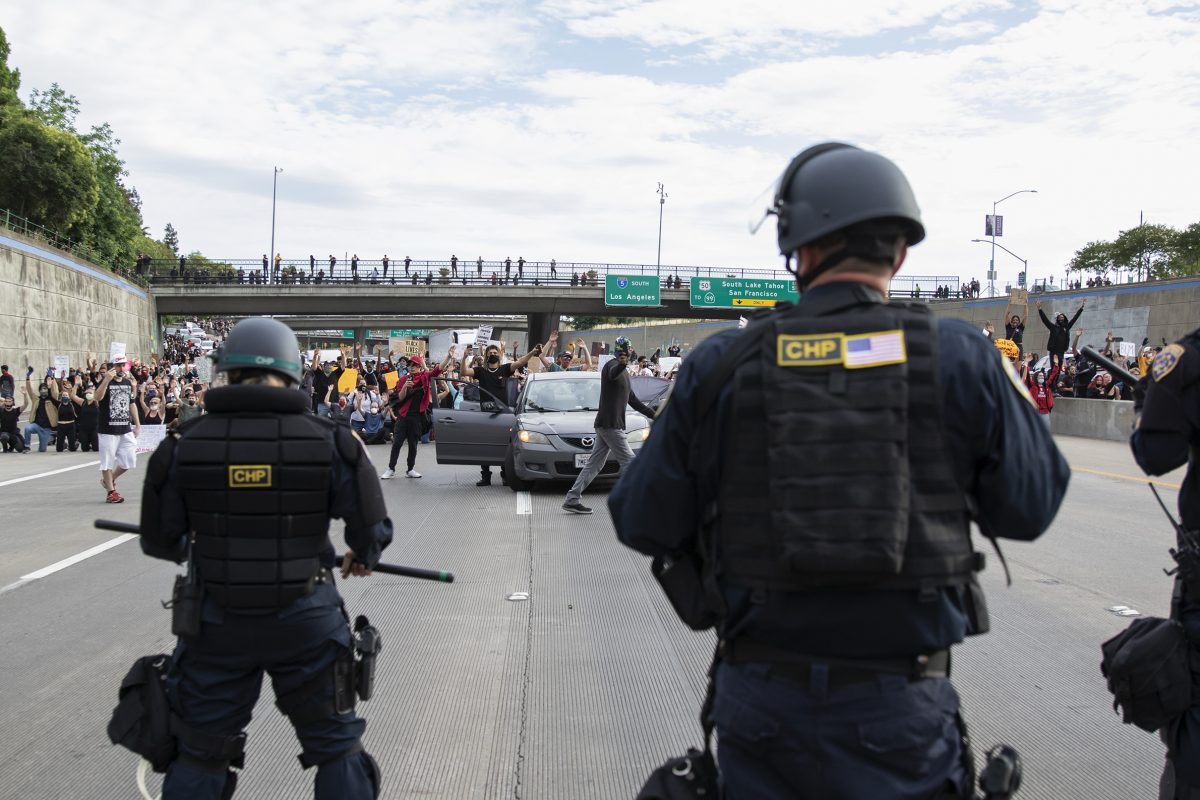
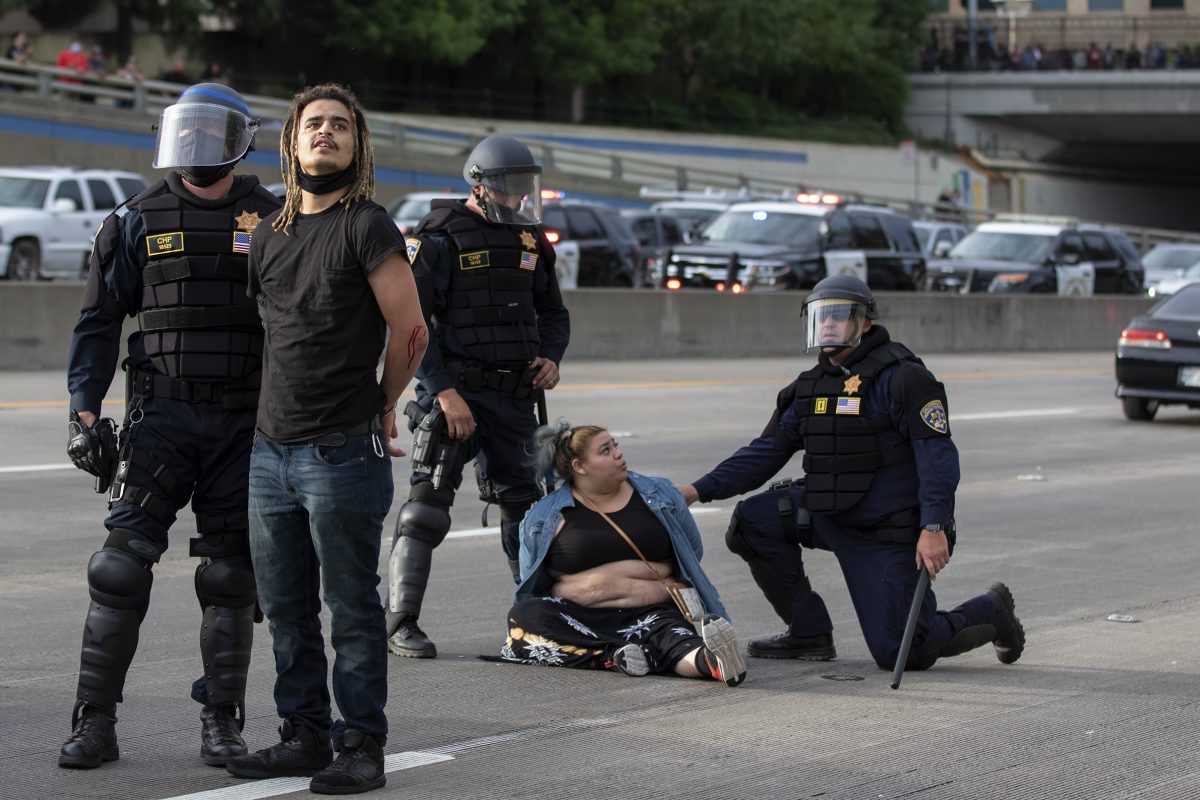
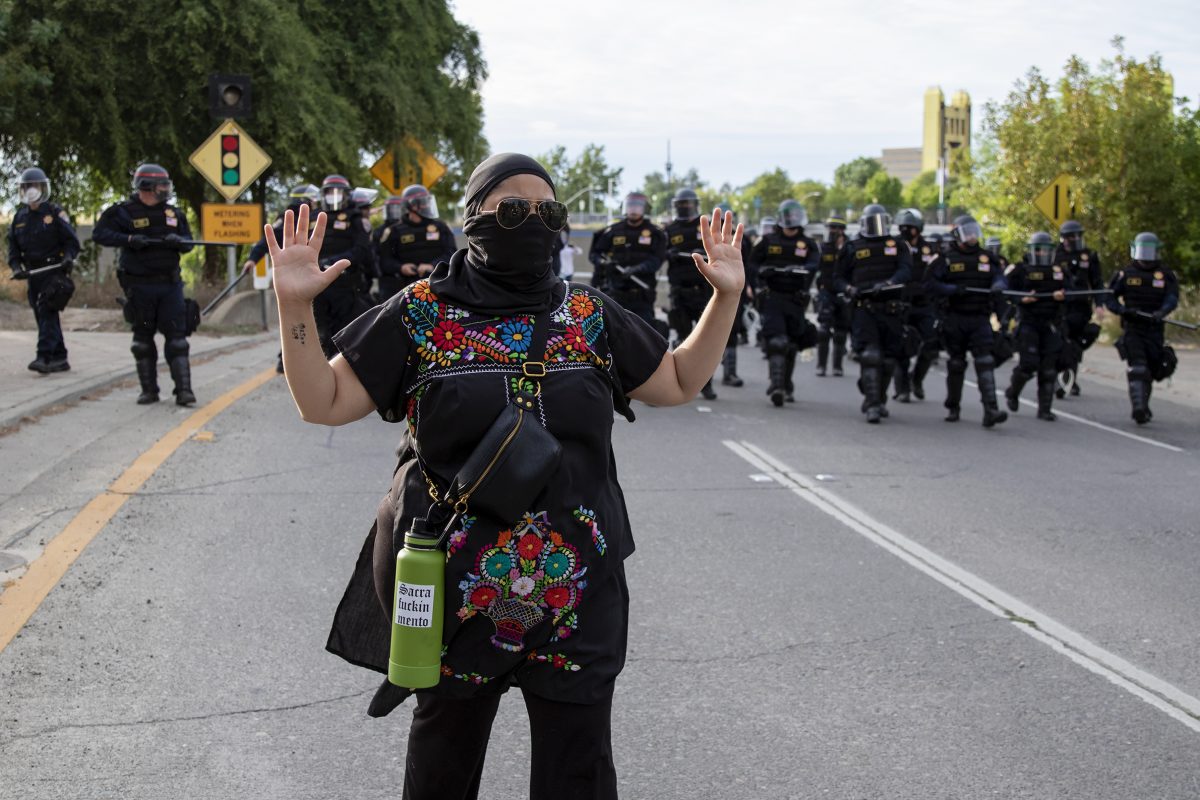
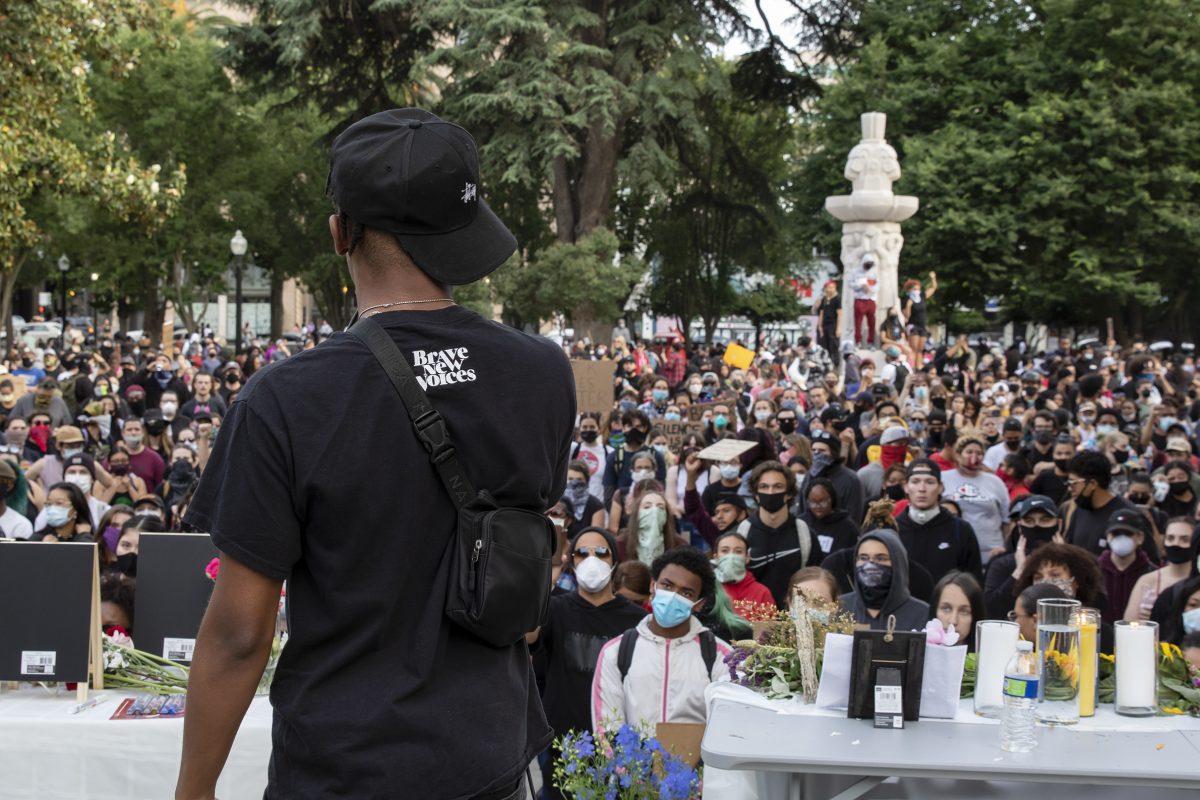
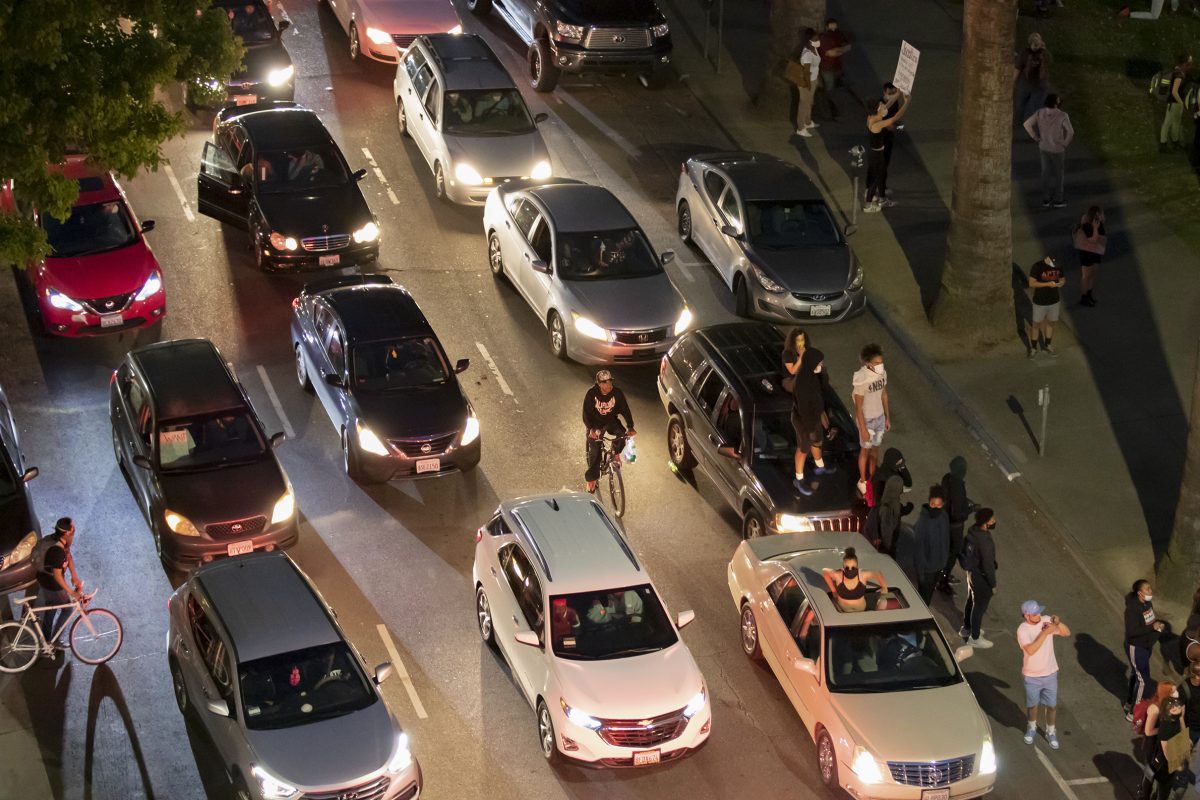
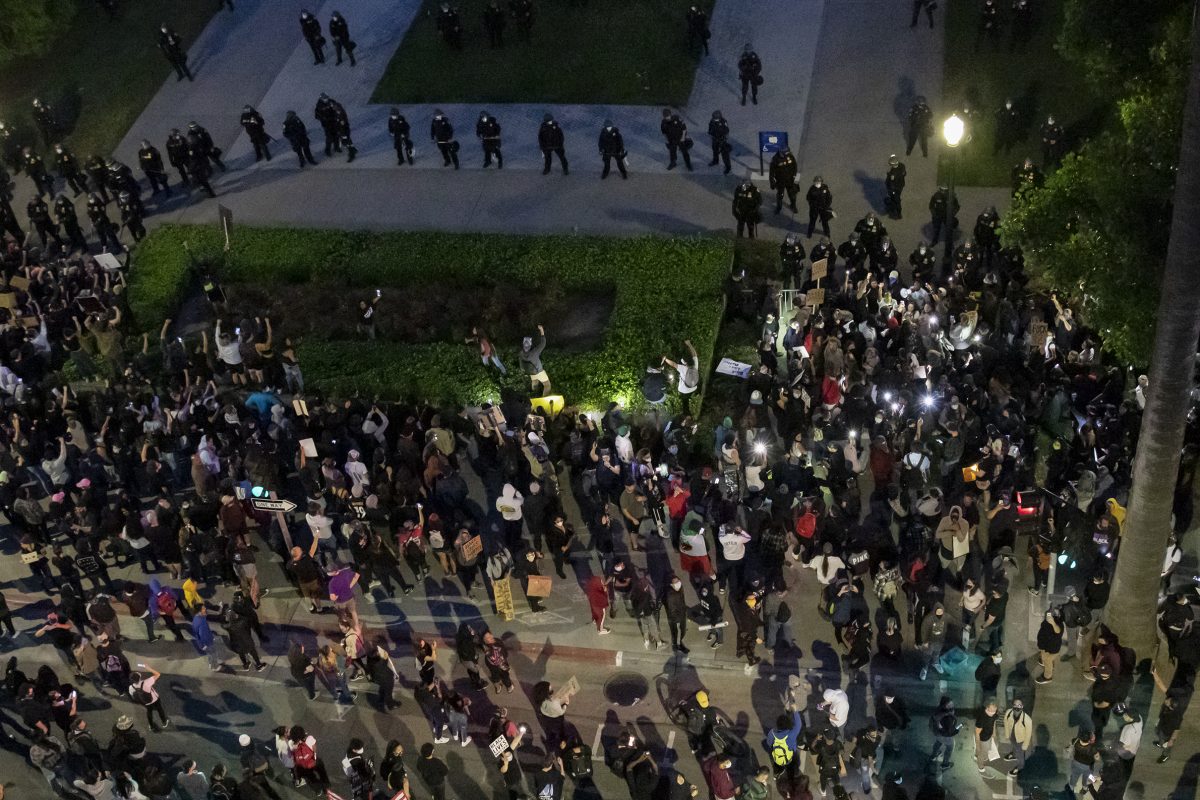
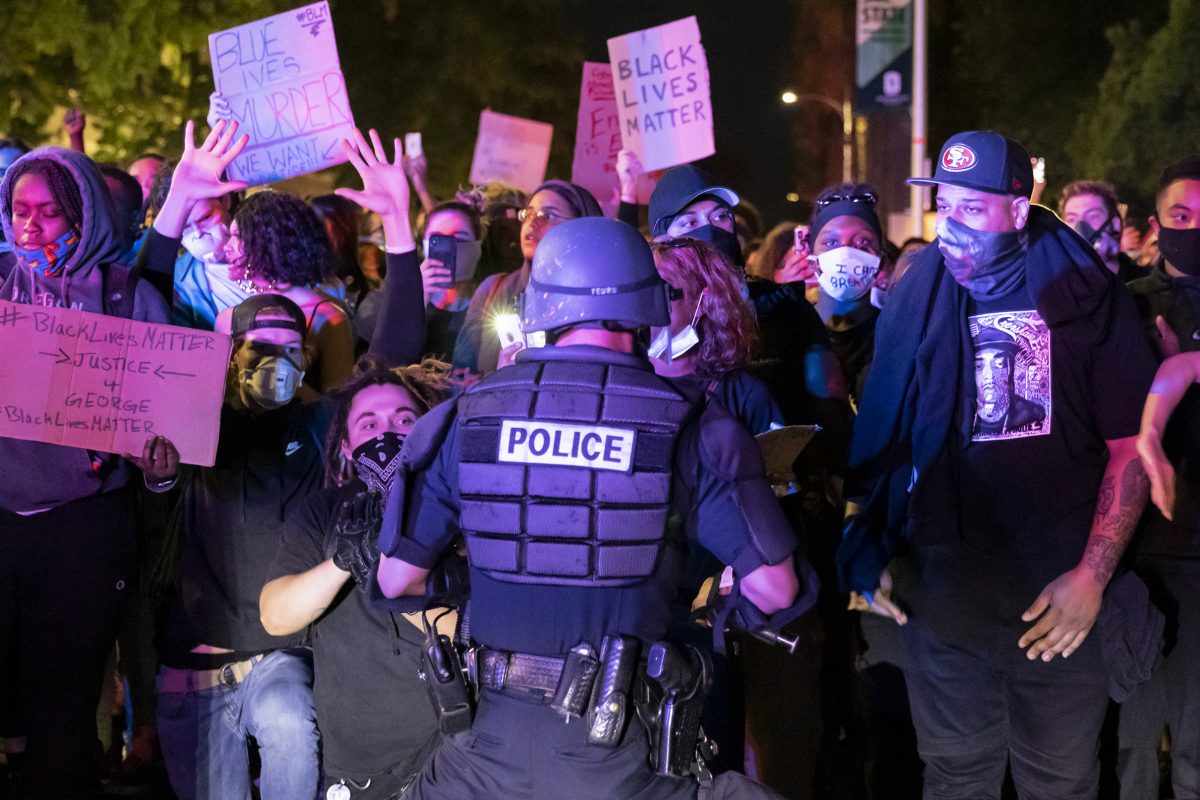
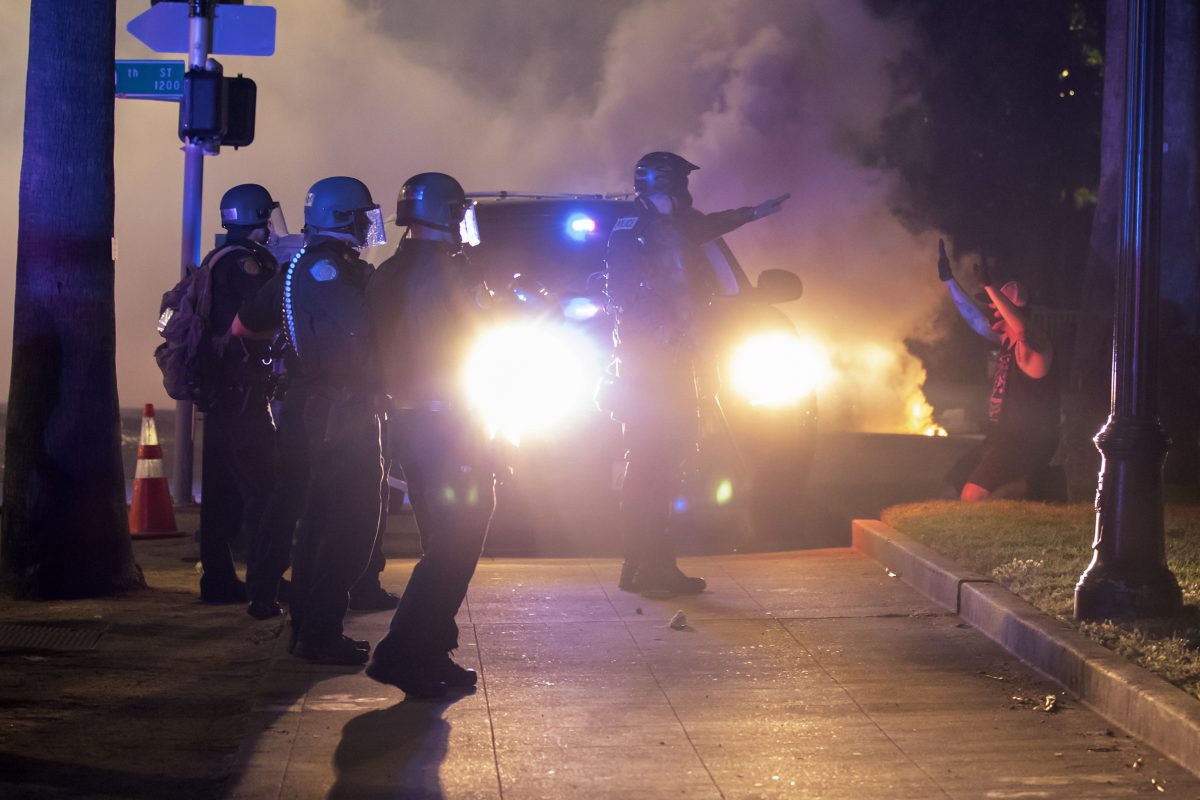
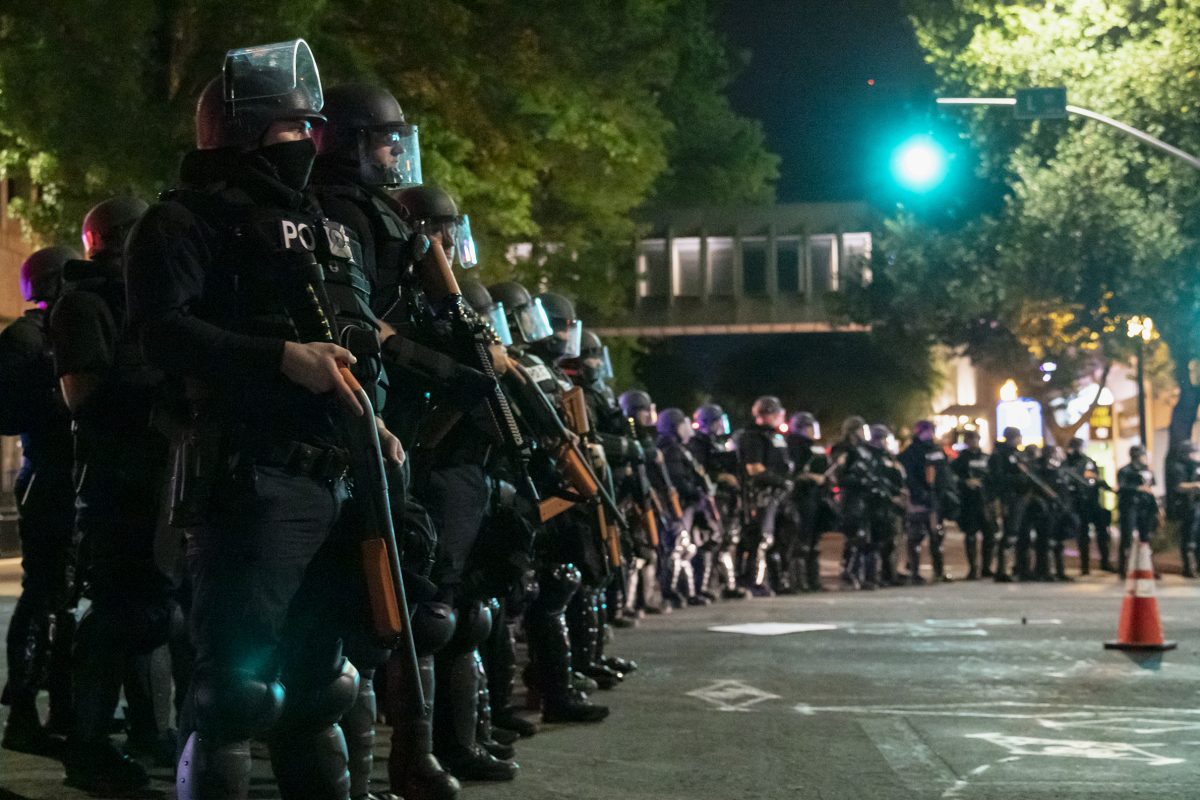
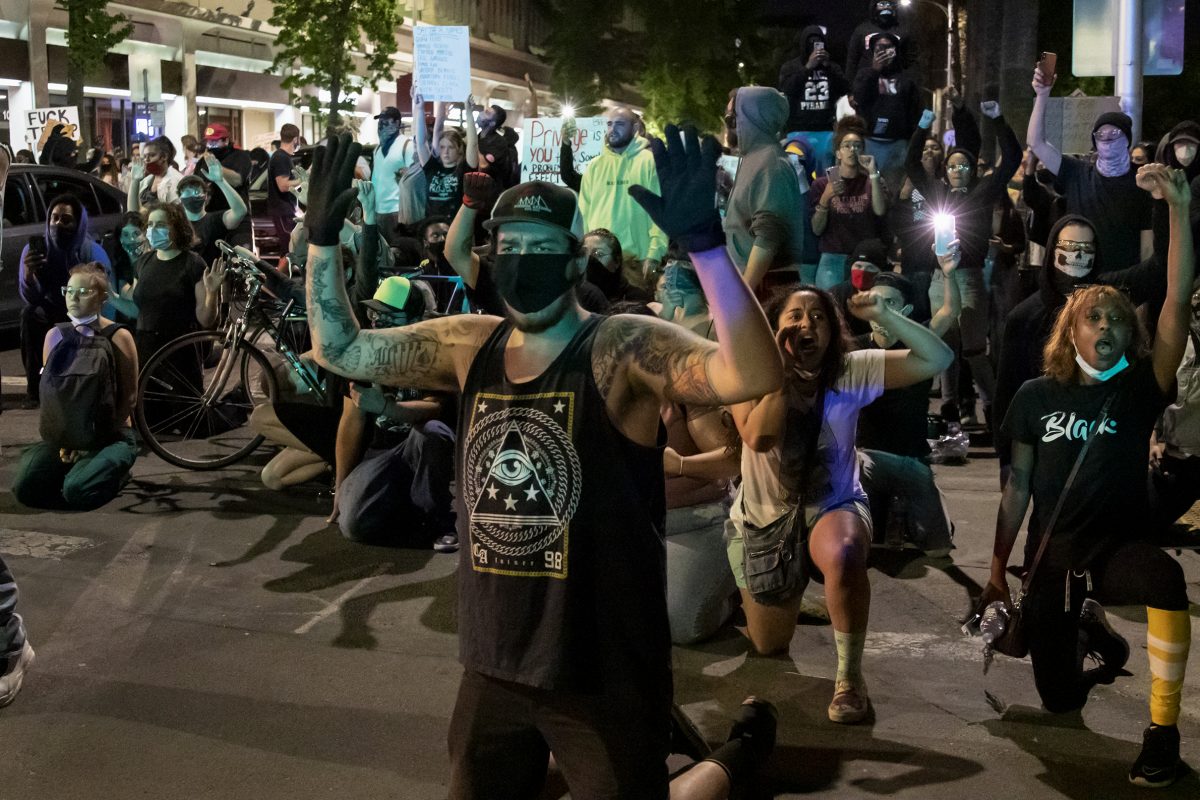
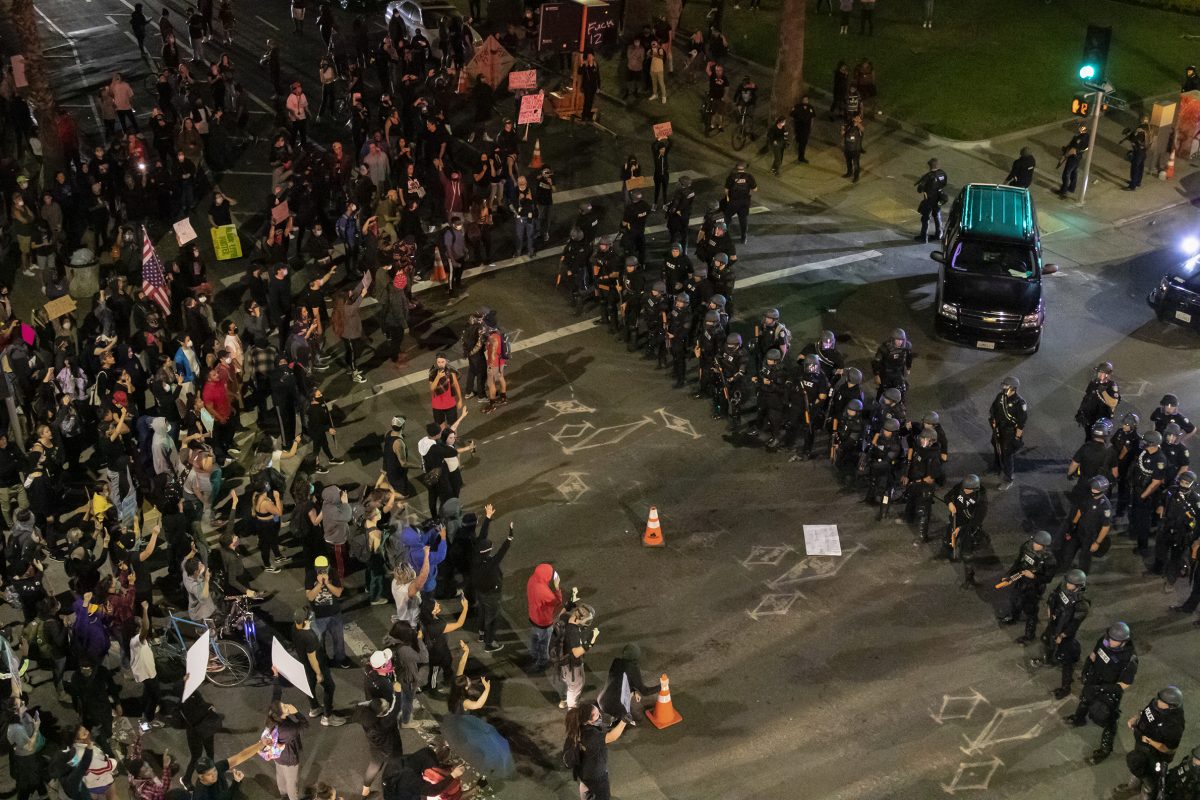
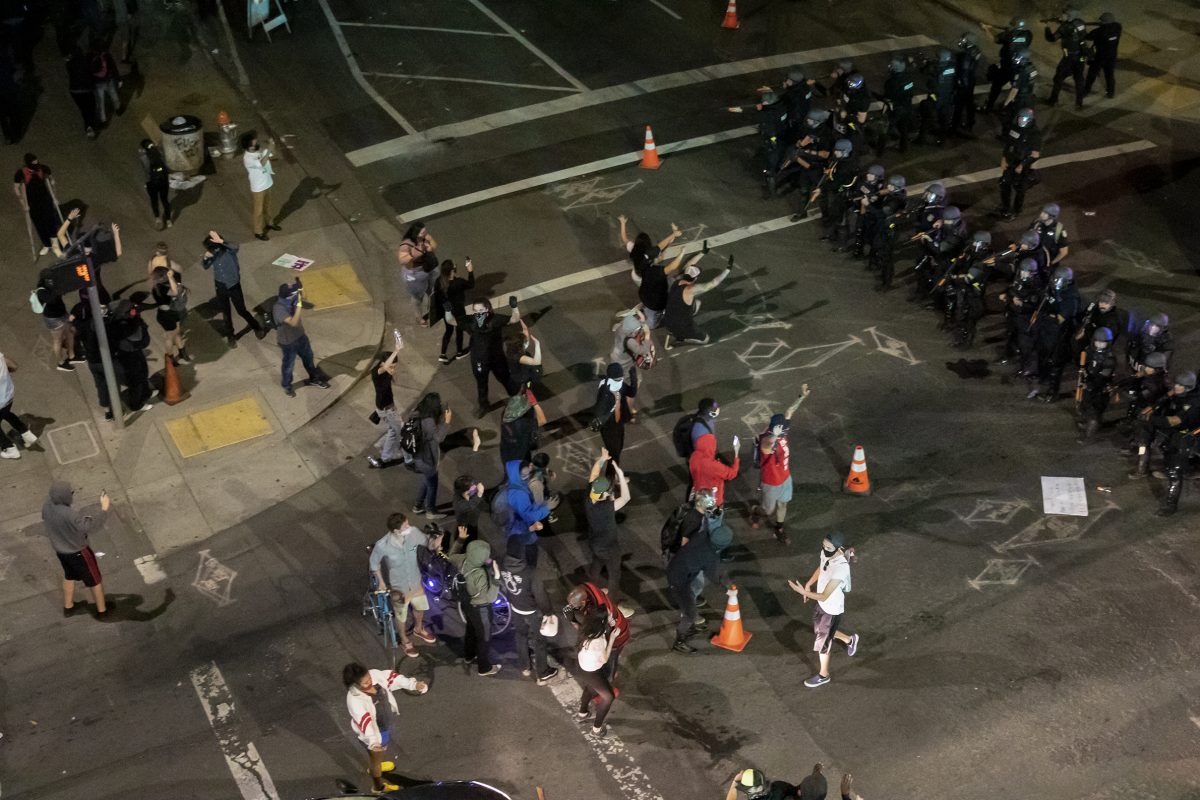
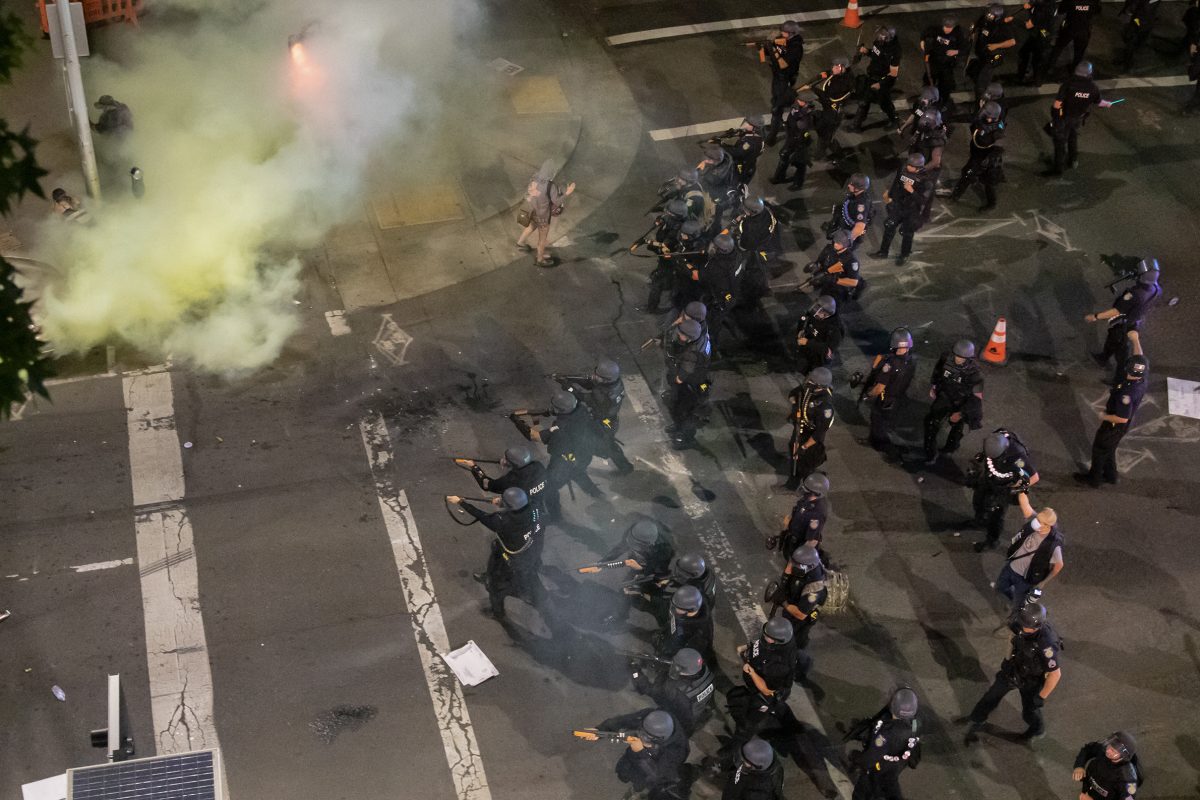
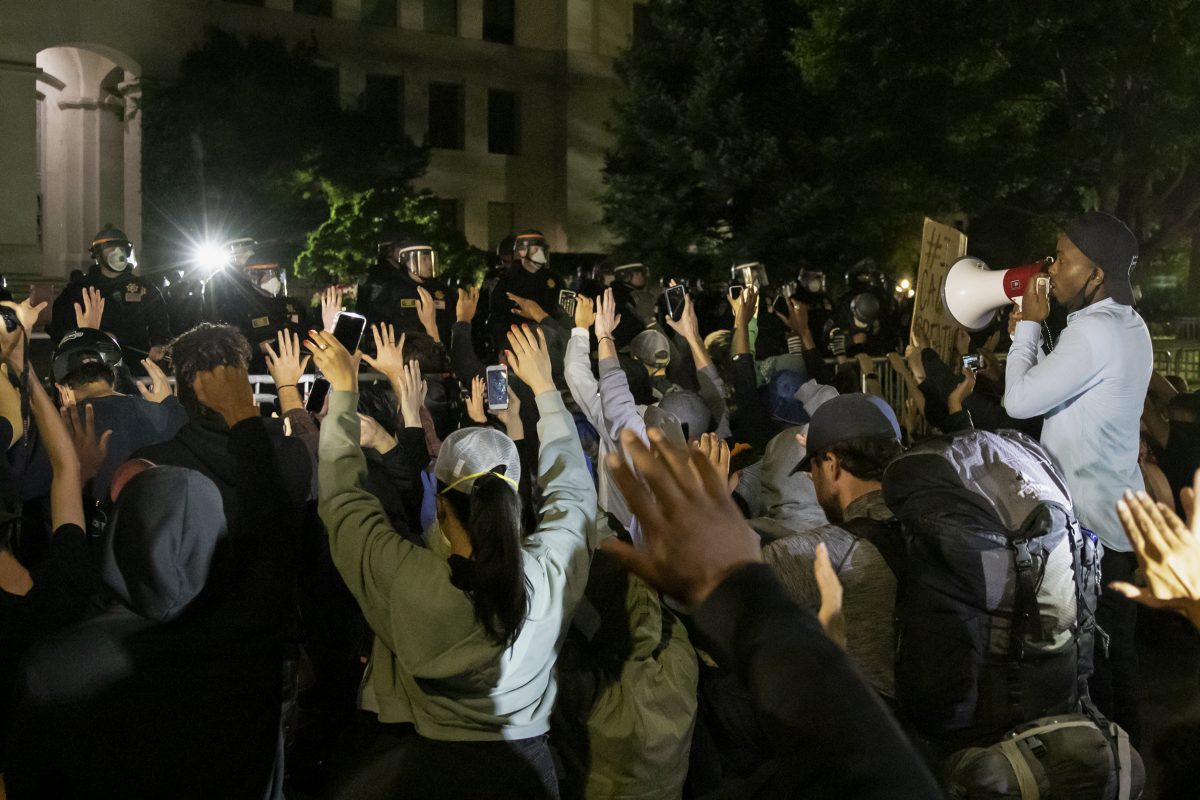
Previous
Next
Catching up with Theo Scott-Femenella
By Rose Vega
Express journalists Rose Vega and Ben Irwin talk with Theo Scott-Femenella about his October 2019 detainment by the police at City College and the recent protests over police brutality.
By Rose Vega
From City College To New York City Professor deploys to the front lines of COVID-19
By Rose Vega
From City College to New York City
Professor deploys to the front lines of COVID-19
Every time he goes to work he dons a head covering, goggles over his glasses, a N-95 mask and surgical mask over that, and on top of everything a face shield. Next he puts on two sets of gowns and two sets of gloves—this is the uniform of Claudio Alvarado, a City College nursing professor currently working in the epicenter of the COVID-19 outbreak, New York City.
“Our community college students are the most resilient students on the planet. Let’s just keep working together, helping each other push forward and we will get through this. We will come out the other side, and we all will be stronger because of the experience we’ve had.”
—California Community Colleges State Chancellor Eloy Oakley on the coronavirus pandemic
By Rose Vega
Student emergency fund sees increased applications during pandemic
“Our community college students are the most resilient students on the planet. Let’s just keep working together, helping each other push forward and we will get through this. We will come out the other side, and we all will be stronger because of the experience we’ve had.”
—California Community Colleges State Chancellor Eloy Oakley on the coronavirus pandemic
By Rose Vega
Student emergency fund sees increased applications during pandemic
Kristin Emmett hears about a lot of students’ struggles as the director of institutional advancement at the Los Rios Foundation that houses the Los Rios Student Emergency Fund. From requests of those experiencing homelessness to those of single parents struggling to buy food, Emmett reads the applications for what she calls “the fund of last resorts.”
By Ben Irwin
Trying to breach the digital divide
The mid-March closure of all Los Rios campuses and the transition to online learning has upended some 75,000 college students from their normal school lives in the greater Sacramento area, promptly bringing the digital divide—the gap between those who have access to internet and computing devices, and those who do not—to the forefront of educational concerns.
By Ben Irwin
Trying to breach the digital divide
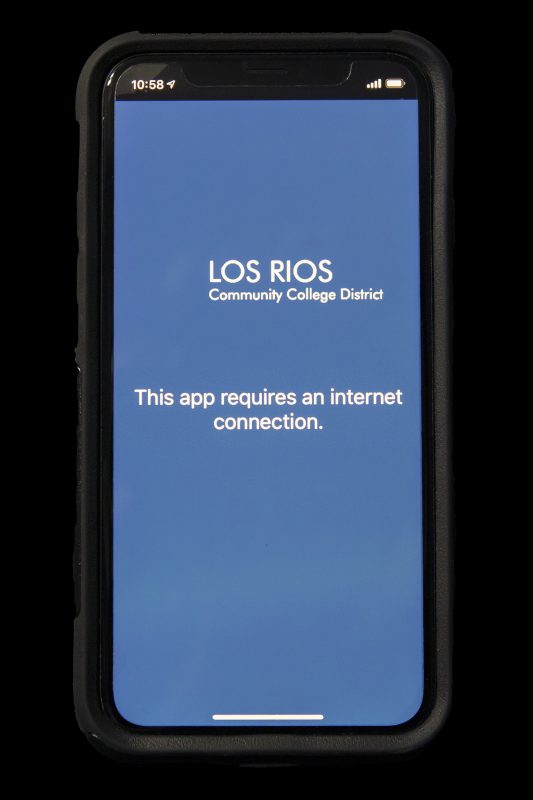
Food insecurity: a part of life for some students at City College
By Sara Nevis
Food insecurity: a part of life for some students at City College
California has a food insecurity rate of 11.7% which translates to 4.6 million people who do not have access to affordable, nutritious food, according to the California Association of Food Banks. It states that on average, one of every eight Californians does not know where their next meal will come from. According to Feeding America, there are 215,570 food insecure people in Sacramento County, 14.4% of the population based on a 2017 study. City College is no different.
“The mass incarceration issue here in the state and across our nation is having this insane impact on our communities”
—Nich Miller, Re-Emerging Scholars co-founder and City College sociology professor
By Rose Vega and Ben Irwin
Re-Emerging Scholars formerly incarcerated students walk a different path at City College
Three students at Sacramento City College aspiring to futures in public service—a high school counselor, child development professional and an entrepreneurial Child Protective Services case advocate—share a common past: They’ve all been formerly incarcerated.
They also share a common future: They’re actively working to create and live their visions of successful lives.
Photo by Sara Nevis
Re-Emerging Scholars formerly incarcerated students walk a new path at City College
By Rose Vega and Ben Irwin
“If you can say someone is essential for work and for the community but not for democracy, then that’s something to really evaluate”
—Jarret Keith, life coach with Anti-Recidivism Coalition
Ending the disenfranchisement of formerly incarcerated Californians
By Rose Vega and Ben Irwin
Ending the disenfranchisement of formerly incarcerated Californians
Jonathan Barber recalls a common occurrence in his life. Leaving a grocery store, he sees a petitioner sitting at a table hoping to secure signatures of voters. Barber is asked to sign, but he can’t. He responds the same way every time.
“‘I’m on parole. I can’t vote.’ Each time that’s another reminder of, ‘Man, you’re not a part of the community yet,’ and that is such a heartbreaking experience for myself and for the other 50,000 Californians that have to go through it.”
My name is Vickie
By Sara Nevis
This is the story of how Vickie Nevis came to be incarcerated and then turned her life around. Nevis had a rough start to life and she turned to drugs and crime. While incarcerated she decided to change her life–take college classes and get clean. After being released she took classes with Los Rios colleges and became a functioning member of society.
Catching up with Nich Miller and Shane Logan
By Rose Vega
Express journalists Rose Vega and Ben Irwin talk with Nich Miller and Shane Logan, Re-Emerging Scholars co-founders and City College sociology professors. The group discusses the Re-Emerging Scholars program, working through the COVID-19 pandemic, and incarceration and public service.
City Conversations
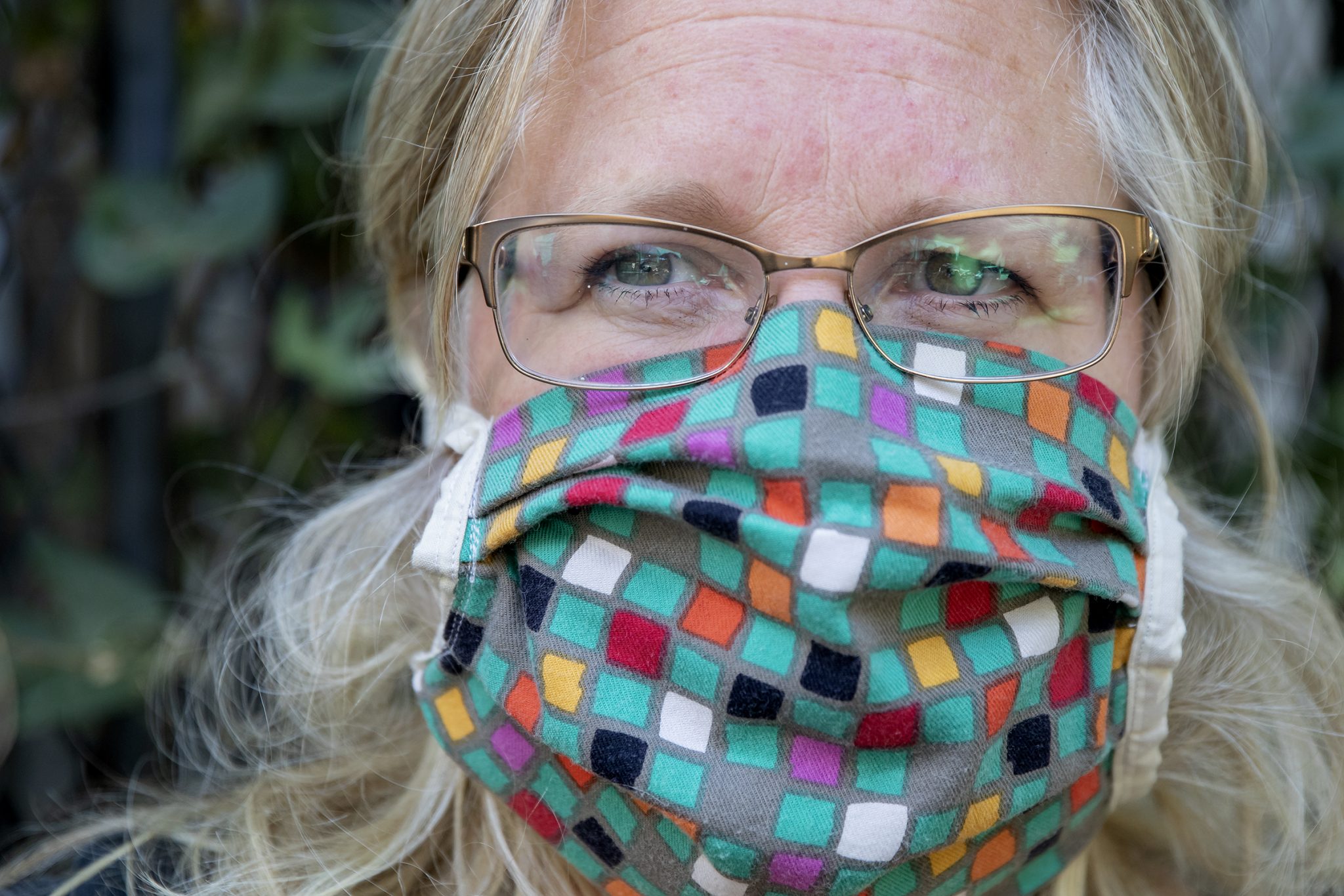
Masks and symbolism with Kim Church
By Ben Irwin
Kim Church is a professor of communication at City College, where she teaches her students about rhetorician Kenneth Burke’s view on humans as symbol-using and symbol-misusing beings. When she’s not teaching at City College, Church advocates for shelter for people living outdoors through her Sacramento nonprofit E.N.G.A.G.E. INC. (Engaging Neighbors to Generate Action via Grassroots Efforts). She says that wearing masks can be viewed as a symbol in the age of COVID-19, but that the symbolism of masks is complicated.
The psychology of sheltering-in-place with Mark Dennis
By Rose Vega
Current chair of psychology department Professor Mark Dennis has been teaching at City College since fall 2014. A former marriage and family therapist, Dennis shares his insights on the psychological impacts of sheltering-in-place due to the COVID-19 pandemic. Dennis holds a master’s degree in clinical psychology and is currently teaching five classes.
Masks and symbolism with Kim Church
By Ben Irwin
The psychology of sheltering-in-place with Mark Dennis
By Rose Vega
City Conversations
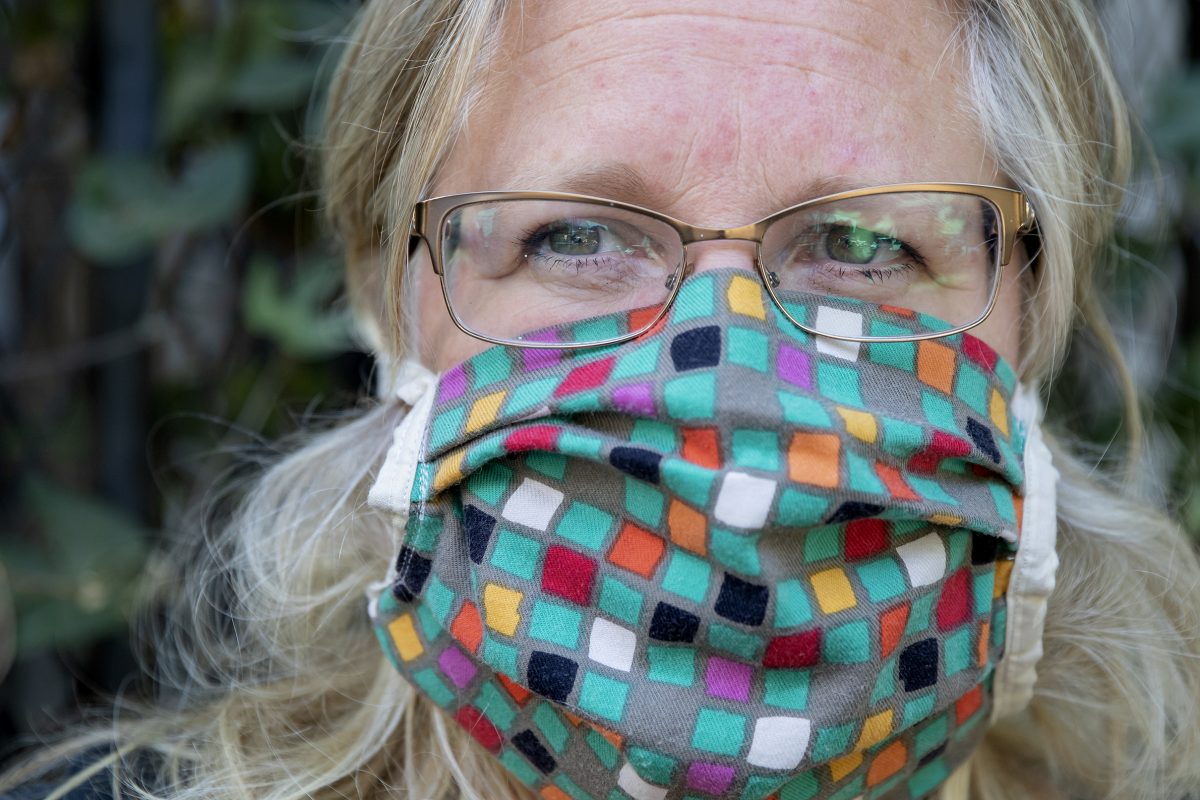
Story behind the story: From Darkness
By Rose Vega
Express journalists Ben Irwin, Rose Vega and Sara Nevis discuss insights into the reporting process and personal highlights of the “From Darkness: City’s journey to light” project.
















